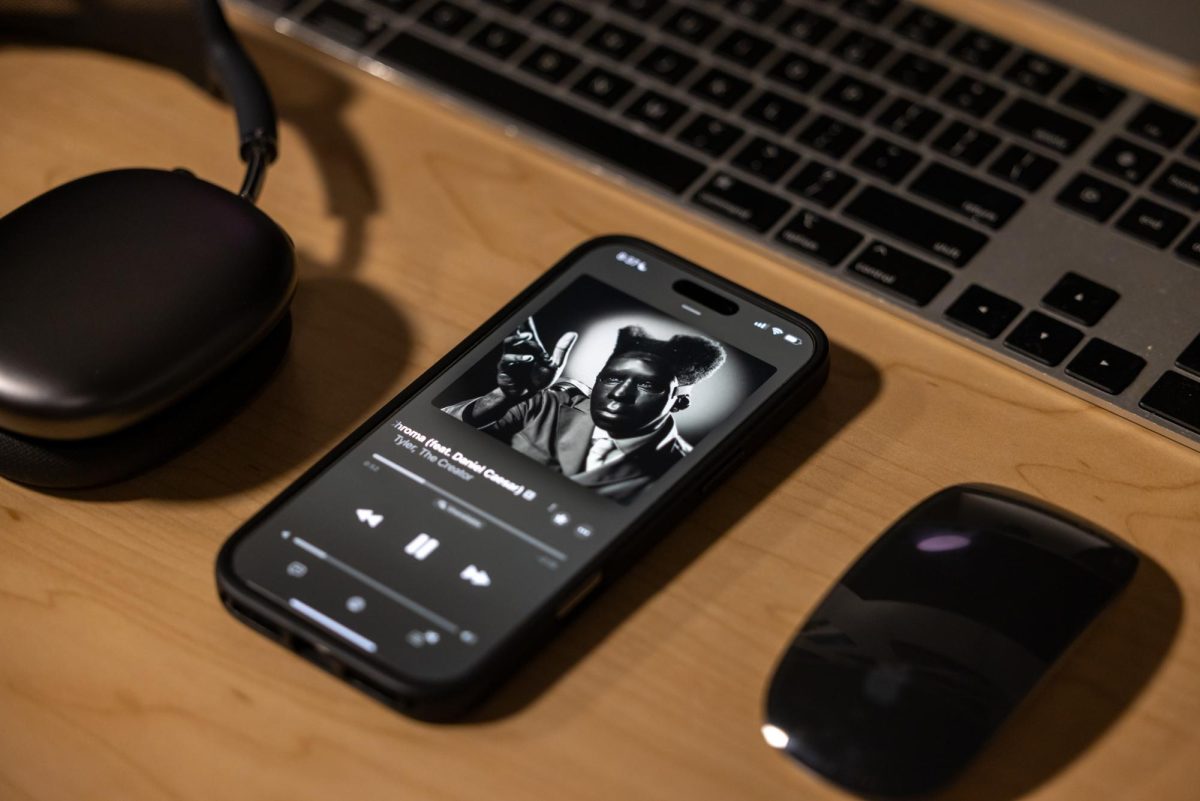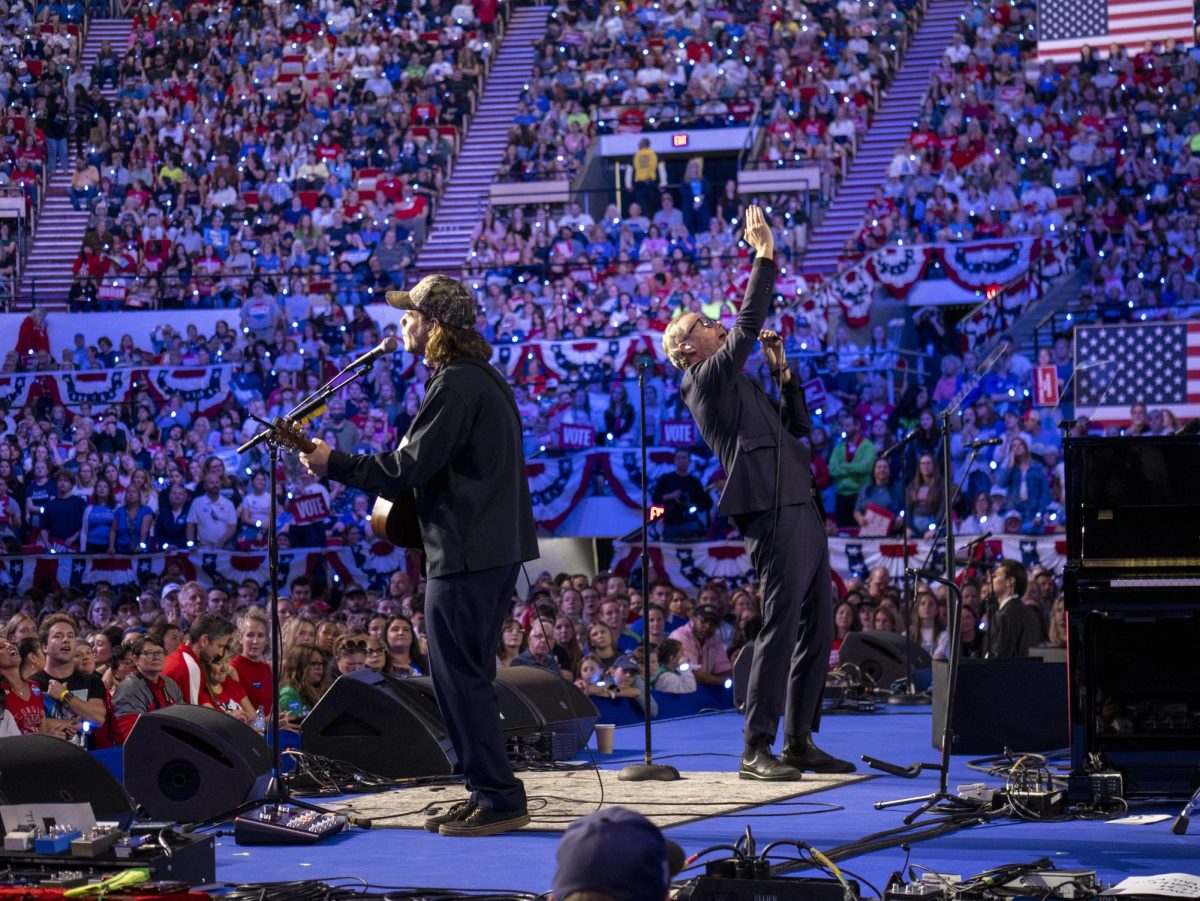Named after a sport known for being preppy, traditional and not in any way rugged, Denver-based band Tennis is not aptly titled.
And in Tennis (the band), love isn’t nothing; love is everything.
Alaina Moore and Patrick Riley, who together make up Tennis, decided to wed at a young age after being urged by two highly-conventional sets of parents who thought the couple ought to be married.
“It really was a compromise with our families. Not that we didn’t love each other or want it. It was just a superficial, legal step that we thought was totally unnecessary,” Moore said. “[But] we figured out a way to do it on our own terms. We waited a long time to get married legally, but we felt like we had already established that level of commitment in our relationship. … Then when we finally did get married, it felt more special because it was up to us.”
Moore said the way she and Riley think about married life has evolved since then, in a positive way.
“I have been completely surprised by how much I value him being my husband; I thought it would be something that I never cared much about,” she said.
With four members in their current roster (which helps them to “play a fuller, more sonically diverse set”), the members of Tennis juggle a marital relationship with the familial bonds of bandmates while traveling on the road. Moore said over the years they have, for the most part, been successful in keeping those realms happily separated. But it can sometimes come at a slight cost.
“That’s always interesting, but as far as working together we really, really do keep our personal lives separate; sometimes to the detriment of our relationship. Especially on the road where you are working night and day, I realize that a month has gone by and we’ve barely interacted as husband and wife,” Moore said. “It’s hard and it takes its toll, even though this musical project was born out of this personal relationship.”
What she means is that the couple first began to play music on their own. It was what Riley has called “bedroom music,” not meant for public stages. But then they were first inspired to create music for outside audiences after an eight-month sailing trip. They sold all their possessions to fund the trip, and the stark experience of being away from land for so long on their own catalyzed their first album: Cape Dory. Moore said they were motivated to make music by a need to document that experience; it was autobiographical. Being at sea was a “lifestyle shock,” without which Tennis would not exist.
“Initially we obviously understood that sailing can be treacherous. So we knew that going into it, but in all honesty … we didn’t quite understand how challenging it was going to be,” Moore said. “There would be so many moments in those first few months on the boat where I would be like ‘When am I going to have that one moment where I’m just lying on the deck of our boat in the sun, with a gentle breeze and a cocktail?'”
Then what inspires Tennis’ music now, if not to document that trip?
“It has changed a lot actually,” Moore said. “Music is no longer a means to an end for us like it was when we made Cape Dory. And now it is just this thing in itself, and just writing a song is now the thing that we strive for.”
Riley and Moore’s style of music is based largely on genres from the 1950s and early ’60s. Its soft, lo-fi sound is reminiscent of girl bands and surf rock from that time.
“That era inspires a lot of artists, writers, anything, because there was so much cultural change and ideological transformation going on during that time. I think that’s why we’re so interested in shows like ‘Mad Men,'” Moore said.
The era was also a timeless period for recorded music in which vinyl was king and digital editing was unheard of. Tennis is unique in that they are DIY artists and were discovered on blogs, not promoted by bigwig record labels like in decades past. Moore said she is grateful for the way they “fell into” the industry.
“Especially in a time when it’s so easy to make music digitally, we force ourselves to work with a much more unforgiving analog recording equipment,” Moore said. “I think it’s really important that people realize what you have to go through to get that sound from what I imagine a song being in my head. It requires a completely different point of view.”
At first, Tennis was hesitant to work with a producer on the band’s albums because it valued the freedoms associated with being entirely self sufficient. However, the band was coaxed out of seclusion when an opportunity arose to work with the Black Keys’ Patrick Carney for Tennis’ second album Young & Old.
“We thought [Carney] would really respect the distinction between producer and songwriter and not force anything on us. And we were right; he was able bring a lot out of us in the studio, and he was able to challenge our habits and the places where we were falling and not even noticing it – without forcing us to undergo some traumatic overhaul of our sound or transform us into something that was his vision as a producer,” Moore said. “He just made us better in whatever we were doing.”
She thinks the band is getting better in general at the quality of music it produces, and another album is definitely in the works. Tennis will only be home for a short time before touring commences again but has already started to write. Fortunately, Madison is one of the stops included on the tour.
“We love Madison and can’t wait to go back,” she said. “It’s one of our favorite stops in the Midwest.”
Tennis will play at the High Noon Saloon in Madison Aug. 3. Show starts at 9:30 p.m. Tickets are $10.













